The bond between humans and cats is a fascinating topic that has been the subject of debate for years. One of the most commonly asked questions is whether cats are truly loyal to their owners. While dogs are often praised for their unwavering loyalty, cats tend to have a more enigmatic reputation. In this blog post, we aim to explore the concept of loyalty in cats and shed some light on this intriguing aspect of feline behavior. By delving into scientific research and personal anecdotes, we will delve into the question: is a cat loyal to its owner? Don't worry, we won't leave you hanging – we'll provide you with valuable insights and perspectives that will help you understand the unique bond you share with your feline friend.
Definition of loyalty and how it commonly applies to human-animal relationships.

Loyalty is a characteristic deeply ingrained in our human nature, and it is a trait that we often seek in our relationships, both personal and professional. When it comes to the human-animal bond, particularly with our feline companions, the concept of loyalty takes on a slightly different meaning.
Traditionally, loyalty is defined as a sense of faithfulness and devotion towards someone or something. In the context of human-animal relationships, it often refers to the unwavering dedication and dependable nature exhibited by our furry friends. Cats, however, tend to exhibit loyalty in their own unique way.
Unlike dogs, who are known for their overt displays of loyalty, cats showcase their loyalty in more subtle ways. While they may not readily come to mind when this trait is mentioned, cats do form attachments and demonstrate signs of loyalty towards their owners. It is essential to understand that a cat's loyalty may not be as openly apparent or expressive as that of a dog, but it exists nonetheless.
One common way a cat exhibits loyalty is through their desire for human companionship. Cats often seek affection and choose to spend time with their owners. It is not unusual to find a cat curled up next to their owner, purring contently, or even following them around the house. These actions indicate that the cat recognizes their owner as a source of comfort and security, which can be considered a form of loyalty.
Furthermore, cats possess an independent nature, which can sometimes be misconstrued as aloofness. However, it is important to note that cats are highly selective when it comes to forming attachments. Once they have established a bond with their owner or caregiver, they demonstrate their loyalty by seeking out their presence and trusting them.
In addition to seeking companionship, cats also display loyalty by fulfilling their role as protectors. Despite their smaller size compared to dogs, cats have a keen sense of their surroundings and can be incredibly vigilant. They may exhibit protective behaviors towards their owners by alerting them to potential danger or by simply being a constant presence that provides a sense of security.
Although loyalty in cats may not match the outward displays we commonly associate with dogs, it is a trait that should not be overlooked. By recognizing their unique ways of showing loyalty, we can better appreciate and nurture the bond we share with our feline friends. Remember that loyalty can manifest itself differently in different relationships, and cats offer their own brand of devoted companionship.
Exploring the independent nature of cats and how it might relate to their loyalty.
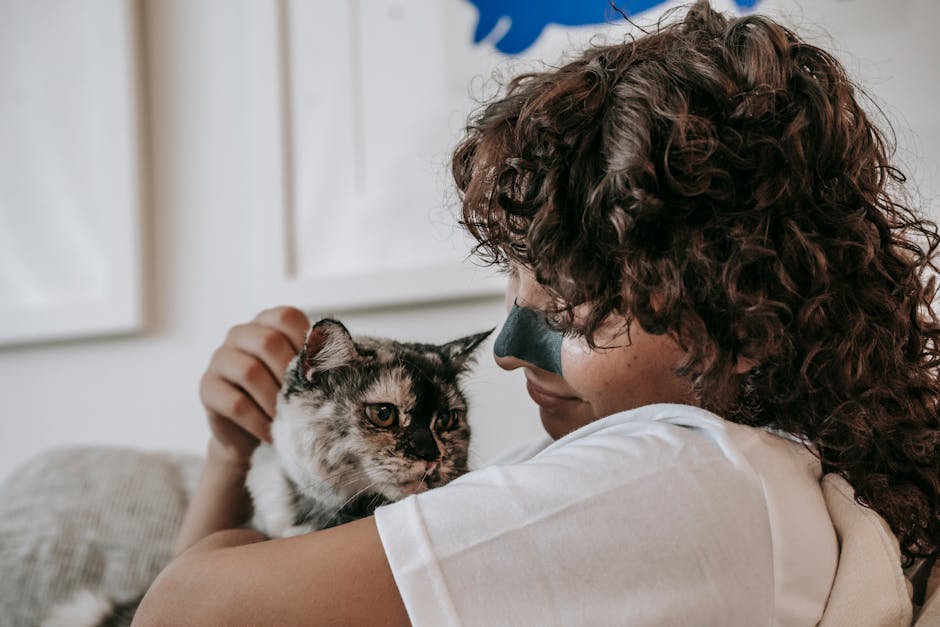
Cats have long been associated with a sense of mystery and independence. Unlike their canine counterparts, they often choose when and how to interact with their owners. This independent nature has led to the misconception that cats are not loyal to their owners. However, when we delve deeper into the complexities of feline behavior, we discover that loyalty in cats manifests in different ways.
One of the key factors contributing to the perceived lack of loyalty in cats is their innate independent streak. Cats are known for their ability to take care of themselves, which can sometimes give the impression that they don't rely on humans for emotional support. Unlike dogs who often seek constant attention and approval, cats are more selective in their interactions. They may appear aloof or disinterested at times, but that does not mean they are not loyal to their owners.
Cats have their own unique ways of demonstrating loyalty. They may not greet you with a wagging tail or slobbery kisses, but they have their own subtle ways of showing affection. Some cats will follow their owners around the house, keeping a watchful eye on their every move. They may choose to curl up next to you or sleep on your lap, seeking physical proximity that suggests a sense of trust and attachment. These actions may be small gestures, but they speak volumes about a cat's loyalty.
Furthermore, it's essential to understand that cats are creatures of routine. They thrive in a familiar environment with established rituals. Once they have established a bond with their owner, they will often resist change and show a sense of loyalty to the familiar setting they call home. Cats find comfort in the predictability of their routines and the presence of their trusted human companion.
It is also important to note that loyalty in cats can be influenced by how they are treated by their owners. A cat that is well cared for, provided with a safe and nurturing environment, and given the attention and affection they need, is more likely to display loyalty. Cats are sensitive creatures and can quickly pick up on the emotions and behaviors of their owners. By fostering a deep bond based on love and respect, owners can nurture a profound sense of loyalty in their feline companions.
In conclusion, the independent nature of cats should not be mistaken for a lack of loyalty. While their behavior may differ from dogs, cats exhibit loyalty in their unique ways. By understanding and appreciating their independent nature, recognizing their subtle displays of affection, and providing them with the care they deserve, we can cultivate a deep and lasting bond with our feline friends built on trust and loyalty.
Discussing the evolutionary background of cats and their domestication history.
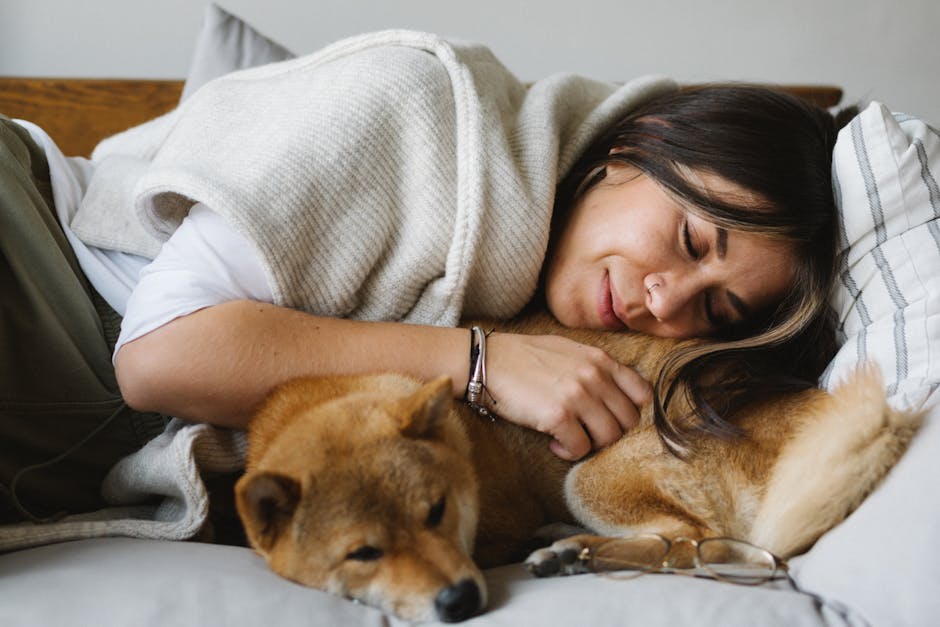
Cats are fascinating creatures with a rich evolutionary background and a long history of domestication. Despite their sometimes mysterious and independent nature, cats have formed deep bonds with humans over the centuries. Understanding their evolutionary journey and the process of domestication helps shed light on their loyalty to owners.
The history of cats can be traced back to the wild feline species, such as the African wildcat (Felis lybica), which roamed the earth thousands of years ago. These wildcats were skilled hunters, solitary creatures that primarily lived independent lives. Their survival instincts and ability to adapt to various environments made them exceptional predators.
Around 9,000 years ago, humans started settling into agricultural communities and began storing grains. This attracted rodents, which, in turn, lured wildcats seeking an easy food source. The wildcats' presence proved beneficial to humans by effectively controlling the rodent population.
This mutually beneficial relationship between humans and wildcats eventually led to their domestication. Over time, humans selected the wildcats that exhibited more favorable traits, such as tolerance towards humans and a willingness to coexist. This selective breeding process eventually resulted in the domesticated cats we know today.
Despite their domestication, the feline instinct for independence and self-preservation still plays a significant role in their behavior. Cats retain many of their hunting instincts, territorial behaviors, and the need for their personal space. However, their loyalty to their owners can be seen through their affectionate behaviors, such as purring, rubbing against their owners, and even bringing small "presents" like dead prey. These actions display a sense of trust and a desire to form a bond.
It's important to note that individual cat personalities vary, and not all cats demonstrate the same level of loyalty. Some cats may be more independent and aloof, while others can form deep attachments to their owners. Factors such as genetics, early socialization, and life experiences can also impact a cat's behavior and level of loyalty.
In conclusion, cats have a long history of domestication that has influenced their loyalty towards their owners. Understanding their evolutionary background and the process of domestication helps us appreciate the unique bond we can form with these amazing creatures. Despite their independent nature, many cats exhibit loyalty and affection towards their human companions, making them cherished pets for millions of people worldwide.
Highlighting instances where cats have displayed loyalty or protective behavior towards their owners.

Cats have often been stereotyped as independent and aloof creatures, but many cat owners can attest to the loyalty and protective nature that their furry companions exhibit. While not as overtly loyal as dogs, cats display their loyalty towards their owners in more subtle yet equally heartwarming ways. Here are a few instances where cats have gone above and beyond to demonstrate their devotion:
1. Protective instincts: In some situations, cats have been known to act protectively when they sense their owners are in danger, just like dogs. There have been cases where cats have hissed, growled or even physically intervened to ward off potential threats, showing their unwavering dedication to keeping their owners safe.
2. Emotional support: Cats are highly intuitive animals, and they can sense when their owners are feeling down or upset. In moments of distress, a loyal cat will often approach their owner, providing comfort by purring, rubbing against them, or simply sitting close by. Their presence alone can be incredibly soothing and reassuring.
3. Guarding personal space: Cats are notorious for being territorial, and when it comes to their owners, this territorial nature can manifest as protective behavior. Whether it's growling at strangers who approach too closely or strategically positioning themselves between their owner and any perceived threats, cats can be surprisingly vigilant when it comes to safeguarding their owner's personal space.
4. Demonstrating trust and vulnerability: Cats are known for being more reserved when it comes to showing affection, but when they do, it's a display of deep trust and loyalty. Trusting their owner enough to expose their bellies, kneading their paws on their laps, or even licking their owner's face are all indications of the strong bond cats can form with their humans.
5. Seeking reassurance: Just like humans, cats can experience fear or uncertainty in unfamiliar or stressful situations. When feeling vulnerable, they may seek solace in their trusted owner by seeking physical contact or attention. Their reliance on their owners for support is a clear sign of their loyalty and dependence.
While it's true that cats may not exhibit loyalty in the same way as dogs, these instances demonstrate that a cat's loyalty to their owner runs deep. Whether it's through protective behavior, emotional support, or simply seeking comfort, cats have their own unique and heartwarming ways of showing devotion to those they consider part of their family.
Presenting scientific studies and research on cat behavior and their bonds with humans.

When it comes to understanding the loyalty of cats towards their owners, scientific studies and research provide valuable insights. These studies help us delve into the intricate bond between cats and humans, shedding light on their behaviors and the depth of their connection.
One such study conducted by researchers at the University of Tokyo examined the attachment behavior of cats towards their owners. The findings revealed that cats do form strong emotional bonds with their owners, similar to dogs and even human infants. In the study, cats were observed displaying signs of separation anxiety when separated from their owners, showing a clear attachment and dependence on their human companions.
Additionally, another study conducted at Oregon State University explored the role of scent in creating a sense of security and loyalty in cats. The research showed that familiar scents, such as that of their owner, can have a calming effect on cats and strengthen their bond. Cats were found to recognize their owner’s scent and react positively to it, further emphasizing the importance of a strong human-feline bond.
Furthermore, research carried out at the University of Lincoln in the United Kingdom examined the impact of social interactions on the loyalty of cats. The study revealed that cats form more secure attachments with owners who actively engage in positive interactions, such as petting, providing treats, and playing with them regularly. This suggests that the level of attention and interaction plays a significant role in determining the loyalty and bond between cats and their owners.
Although these scientific studies provide evidence of the loyalty that cats can exhibit towards their owners, it is essential to remember that each cat is unique in its behavior and temperament. Just like humans, some cats may inherently be more affectionate and loyal, while others may be more independent. Understanding and respecting the individual personality of each cat is vital in nurturing and strengthening the bond between them and their owners.
In conclusion, scientific studies and research have revealed that cats do form loyal and emotional bonds with their owners. The intensity of this loyalty can be influenced by factors such as shared experiences, positive interactions, and familiar scents. By acknowledging and appreciating the unique qualities of our feline companions, we can cultivate a deeper, more fulfilling bond with them.
Examining the factors that can influence a cat's loyalty, such as early socialization, treatment, and environment.
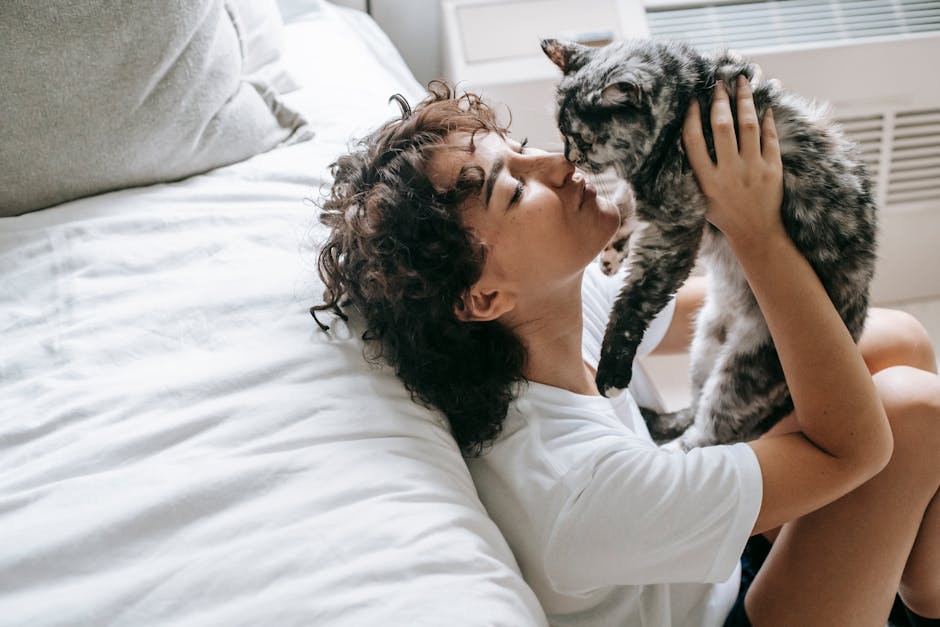
Examining the Factors That Can Influence a Cat's Loyalty
When it comes to understanding the loyalty of cats towards their owners, there are several factors that can influence their behavior. It's important to recognize that each cat is unique and may exhibit varying degrees of loyalty. However, factors such as early socialization, treatment, and environment can play a significant role in shaping a cat's loyalty towards its owner.
Early socialization is crucial in determining a cat's loyalty. Kittens that are exposed to positive interactions with humans and other animals during their early developmental stages are more likely to form strong bonds with their owners. The way a kitten is handled and raised during this critical period can have a lasting impact on their social behavior and ability to trust.
Additionally, the treatment a cat receives from its owner greatly affects its loyalty. Cats thrive in an environment where they feel loved, respected, and cared for. Providing them with proper nutrition, regular veterinary care, and opportunities for mental and physical stimulation can foster a deep sense of trust and loyalty. Conversely, neglect, abuse, or inconsistent care can deteriorate the bond between a cat and its owner.
The environment in which a cat lives also plays a significant role in determining its loyalty. Cats are territorial creatures, and creating a safe and comfortable living space is essential for them to feel secure. A stable and predictable environment with a designated space for feeding, sleeping, and playing can contribute to a cat's sense of belonging and attachment to its owner. Additionally, providing environmental enrichment, such as scratching posts, toys, and vertical spaces, can help alleviate stress and promote a positive bond.
It's worth noting that while some cats may naturally be more independent and less overtly loyal, they can still form deep and meaningful connections with their owners. Understanding and respecting a cat's individual personality traits is crucial for building a strong bond. Patience, consistency, and gentle interactions can go a long way in nurturing a cat's loyalty.
In conclusion, a cat's loyalty towards its owner is influenced by various factors. Early socialization, treatment, and environment all contribute to shaping a cat's behavior and sense of attachment. By providing a loving and nurturing environment and forming positive associations, owners can foster a strong bond of loyalty with their feline companions.
Addressing common misconceptions about cat loyalty and clarifying the differences between cat and dog loyalty.
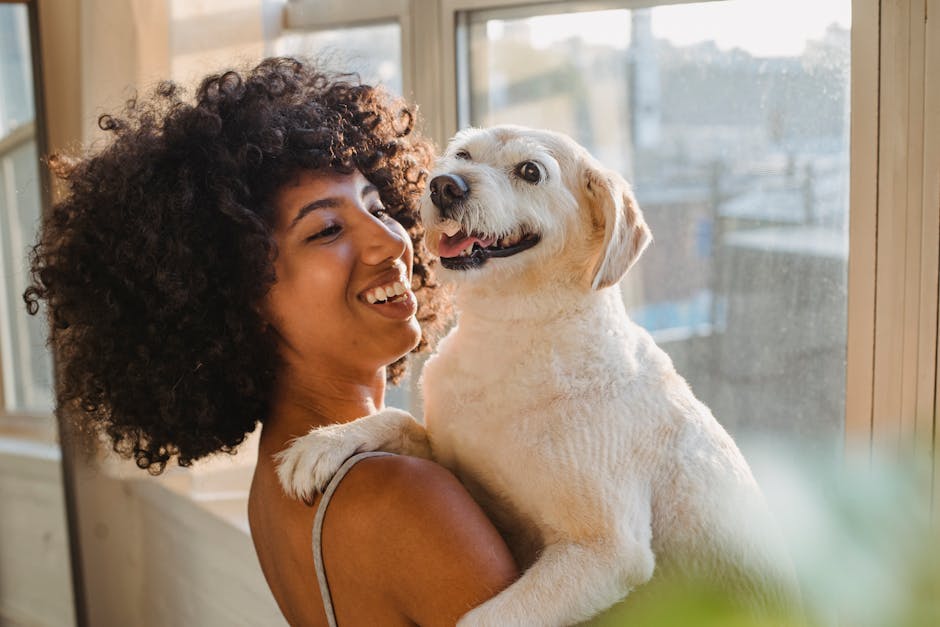
When it comes to discussing loyalty, dogs often take the spotlight while cats are often seen as aloof and less loyal. However, it's essential to address the common misconceptions surrounding cat loyalty and understand the fundamental differences between cat and dog loyalty.
Cats may not exhibit loyalty in the same way dogs do, but that doesn't mean they are not devoted to their owners. Cat loyalty is more nuanced and often misunderstood. While dogs are pack animals with a deep-rooted hierarchy, cats are solitary hunters by nature. This solitary upbringing influences their behavior and, consequently, their perception of loyalty.
Cats show their loyalty through different behaviors. They may not eagerly follow their owners around or display outward signs of affection like dogs, but they often exhibit subtle gestures to demonstrate their attachment. These may include rubbing against their owner's legs, purring, or seeking physical closeness on their terms. Cats will often choose a favorite spot in the house, like their owner's lap or a cozy corner, where they feel most comfortable and safe, reaffirming their attachment to their owner.
Unlike dogs who tend to form strong bonds with their entire family, cats generally bond closely with a particular person or a select few. This selective attachment is not a sign of disloyalty but rather a reflection of their independent nature and ability to form deep emotional connections. Cats may reserve their loyalty for the person they perceive as their primary caregiver, relying on that person for affection, security, and basic needs.
It's important to remember that each cat has a unique personality and will express their loyalty in their way and on their terms. While some cats may be more outgoing and openly affectionate, others may be more reserved, but their loyalty remains steadfast nonetheless. By understanding and appreciating these differences in cat loyalty, we can better recognize and value the bond we share with our feline companions.
In conclusion, although cat loyalty may not be as overt as dog loyalty, it is still present in its own subtle and individualized way. By shedding light on the misconceptions surrounding cat loyalty and recognizing the unique nature of feline companionship, we can deepen our understanding and appreciation for the special bond between cats and their owners.
Providing personal anecdotes or case studies of individual cat-owner relationships as examples.
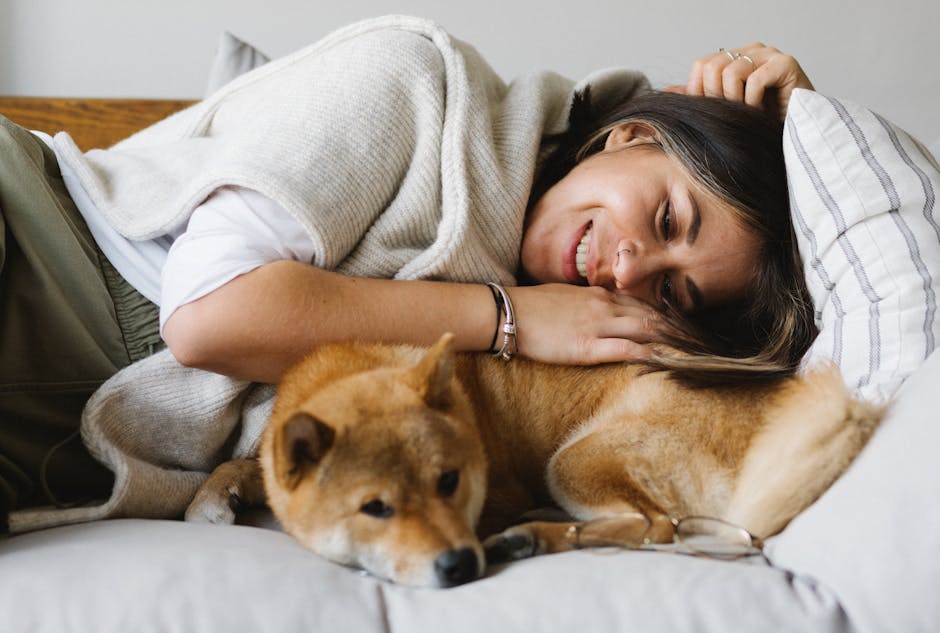
In the world of pet ownership, one common question that often arises is whether cats are truly loyal to their owners. While it may be easy to assume that felines are elusive and independent creatures, there are countless personal anecdotes and case studies that can shed light on the unique bond formed between cats and their owners.
One such heartwarming story comes from Sarah, a devoted cat owner from Chicago. Despite being known for her aloof nature, Sarah's cat, Luna, has consistently displayed remarkable loyalty throughout their years together. Sarah recounts a time when she fell ill, spending weeks bedridden. Luna would not leave her side, curling up beside her and purring gently, offering a comforting presence in the midst of her illness. Even as Sarah recovered, Luna continued to show unwavering loyalty and affection, always greeting her enthusiastically at the door and keeping a watchful eye over her.
Another remarkable example of loyalty can be found in the case of Emily, a veterinarian, and her beloved cat, Oliver. As a busy professional, Emily often had to work long hours at her clinic. Despite the limited time they spent together, Oliver always appeared delighted to see her return home, eagerly rubbing himself against her legs and showering her with affectionate purrs. Emily recalls how Oliver would perch himself on her shoulder as she worked late into the night, providing the perfect company and unwavering support during stressful times.
These personal anecdotes are just a glimpse into the depth of loyalty that cats are capable of displaying towards their owners. While it may vary from cat to cat, it is evident that the bond formed between an owner and their feline companion can be profound and long-lasting.
In addition to these personal stories, various studies have also been conducted to explore the loyalty of cats. Researchers have found that cats have the capability to form strong, emotional bonds with their human caretakers. In one study published in the journal Animal Behavior, it was observed that cats showed a significantly higher level of attachment towards their owners compared to unfamiliar humans. This finding further emphasizes the loyal nature that cats can exhibit in their relationships with their owners.
So, while cats may possess an independent streak, it is clear that they are indeed capable of displaying remarkable loyalty towards their human counterparts. Personal anecdotes, such as those mentioned above, coupled with scientific studies, all work together to showcase the depth and strength of the bond formed between cats and their owners. Whether it's providing comfort during times of illness or being a constant source of companionship, cats have proven time and again that their loyalty knows no bounds.




